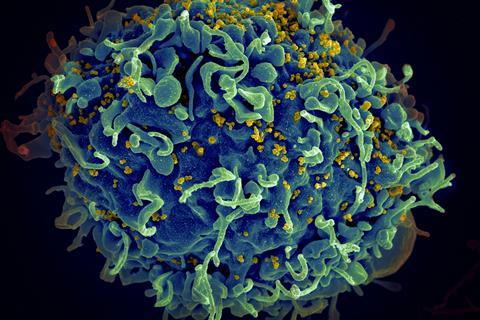Researchers have found that children of women with HIV infection have an increased risk of immune abnormalities following exposure to maternal HIV viraemia, immune dysfunction, and co-infections during pregnancy.

The study, led by Dr Ceri Evans while at Queen Mary University of London, compared clinical outcomes between infants who were HIV-exposed and HIV-unexposed in the Sanitation Hygiene Infant Nutrition Efficacy (SHINE) trial in rural Zimbabwe.
Despite high coverage of maternal antiretroviral therapy (ART) and uptake of exclusive breastfeeding, mortality in infants exposed to HIV was 41% higher than in infants not exposed to HIV. Infants who survived and remained HIV-free had impaired growth and development.
Biological pathways
Analysis of blood samples from both mothers and children in the trial showed evidence of several biological pathways that contributed to the increased mortality seen in this cohort of infants. Systemic inflammation among women with HIV, as measured by C-reactive protein (CRP), was strongly associated with infant mortality, suggesting that interventions targeting maternal inflammation and its causes during pregnancy might reduce infant mortality.
Researchers also found that the immune development of HIV-exposed babies – and especially boys – was different to those who had not been exposed to HIV, making it less effective in dealing with future infections. Infection with cytomegalovirus (CMV), which is a co-factor in HIV disease progression, was also found to be independently associated with infant mortality, as well as impacting on the development of the child’s immune system.
Skewed immune milieu
Dr Evans, NIHR Clinical Lecturer in Paediatric Infectious Diseases now at the University of Liverpool, said: ”Collectively, these findings show how the skewed immune milieu of women with HIV in pregnancy – characterised by inflammation, immune dysfunction, and co-infections – shapes immune development in their offspring.
“Inflammation, as indicated by CRP, is inexpensive and simple to measure, offering the immediate opportunity for antenatal point-of-care testing to be used to identify those most at risk of infant mortality, with more support provided for high-risk pregnancies. CMV co-infection, which is common in sub-Saharan Africa, may offer a new intervention target to improve outcomes in this vulnerable population of children.”
Dr Marlène Bras, HIV Programmes and Advocacy Director at IAS – the International AIDS Society – said: “The IAS Collaborative Initiative for Paediatric HIV Education and Research (CIPHER) awarded Dr Evans a grant in 2019 for his project, “The impact of improved water, sanitation and hygiene (WASH) on cytomegalovirus co-infection in HIV-affected mothers and children in rural Zimbabwe.”
Dr Evans is a prime example of the importance of programmes such as CIPHER in supporting early-stage investigators and fostering innovative solutions for an integrated HIV response for infants, children, adolescents and young people living with and affected by HIV. We congratulate Dr Evans on his successes and look forward to working with him in the future.”







No comments yet